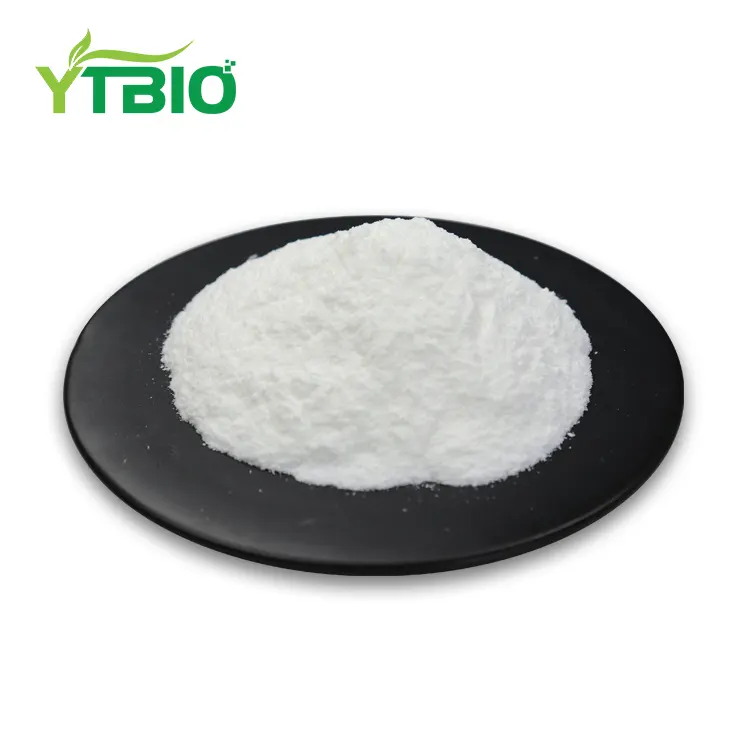Pure Taurine Powder
Purity:99%
Water solubility: easily soluble
CAS: 107-35-7
EINECS: 203-483-8
Molecular formula: C2H7NO3S
Test:HPLC
Shipping Speed: 1-3 days
Inventory: In Stock
Certificates:cGMP,ISO22000,ISO9001,EU&NOP Organic Certificate,Kosher,BRC,Halal,HACCP
- Fast Delievery
- Quality Assurance
- 24/7 Customer Service
Product Introduction
Do You Know Pure Taurine Powder?
Pure Taurine Powder, a white crystalline or crystalline powder, is a sulfur-containing, non-protein amino acid that plays an important role in the human body and is one of the main active ingredients in the traditional Chinese medicine "Niuhuang." Taurine has been shown to relieve fatigue, protect the nervous system, improve memory, enhance immunity, have anti-aging effects, and promote growth.
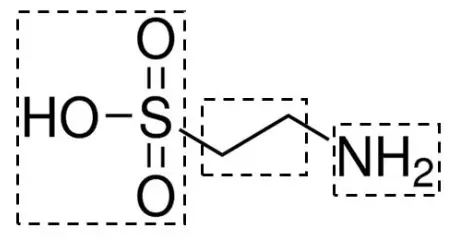
Pure Taurine Powder is widely distributed throughout the body's tissues and organs. It is a sulfur-containing amino acid in animals, but it is not a component of protein. Taurine, as a free amino acid, is widely distributed in the brain, heart, liver, kidney, ovary, uterus, skeletal muscle, blood, saliva, and breast milk of humans and animals, with the highest concentrations in tissues such as the pineal gland, retina, pituitary gland, and adrenal glands. In the heart of mammals, free taurine accounts for as much as 50% of the total free amino acid content.
Pure Taurine Powder now is widely used in various fields, including medicine, food additives, detergents, fluorescent brighteners, and pH buffers.
YTBIO:Professional Pure Taurine Powder Manufacturer and Supplier
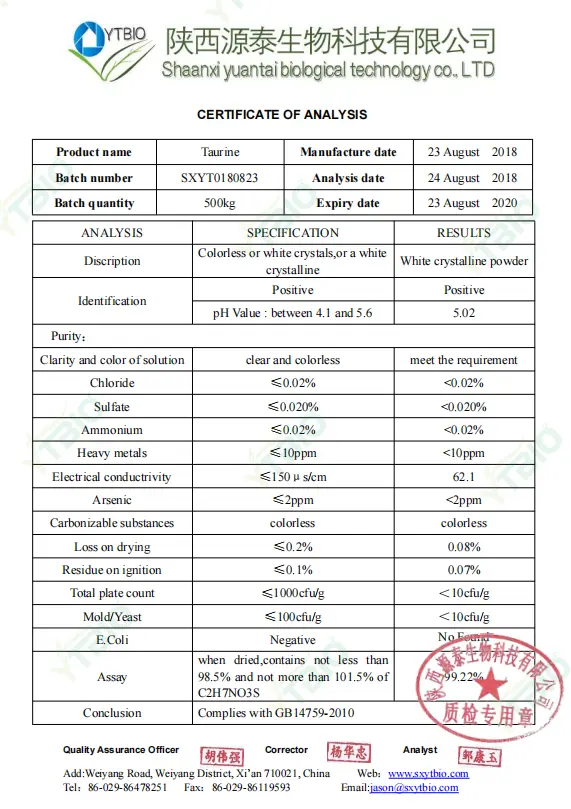
What Are The Main Functions Of Pure Taurine Powder?
Pure Taurine Powder is used worldwide as a dietary supplement and is crucial for human health. Therefore, in addition to its widespread use as a dietary supplement, many taurine-related drug clinical trials have been completed or are underway worldwide.
1. Relieve Fatigue
Energy Metabolism Support: Helps break down fat, enhances mitochondrial function, and improves exercise endurance and fatigue resistance.
Cell Protection: Regulates ion balance (such as calcium and potassium) inside and outside cells, protecting cells from damage.
2. Cardiovascular Health
Blood Pressure Regulator: Helps lower high blood pressure by inhibiting sympathetic nerve excitation and dilating blood vessels.
Improves Myocardial Function: Enhances cardiac contractility, prevents arrhythmias, and reduces the risk of atherosclerosis and heart failure.
Lowers Cholesterol: Promotes bile acid synthesis and helps metabolize excess cholesterol.
3. Nervous System
Promotes Brain Development: Infants and young children rely on taurine for brain development (found in high concentrations in breast milk).
Antioxidant and Anti-anxiety Benefits: Reduces oxidative damage to nerve cells, regulates neurotransmitters (such as GABA), relieves anxiety, and improves sleep.
4. Vision Health
The retina contains extremely high concentrations of taurine; a deficiency may lead to vision loss and retinal degeneration (such as night blindness).
5. Metabolic Regulators
Promotes Fat Metabolism: Assists with weight control and improves obesity-related metabolic problems.
Regulates Blood Sugar: Enhances insulin sensitivity and has a certain supporting effect for diabetics.
6. Liver Protection
Helps the liver break down toxins (such as alcohol and drug metabolites) and reduces liver damage.
7. Other Benefits
Immune Boosting: Protects immune cells through antioxidant effects.
Reproductive Health: May increase sperm motility and improve reproductive function.
Pure Taurine Powder:Applications and Market Situation
Application Situation
Pure Taurine Powder can be used as an ingredient in functional beverages and health foods, leveraging its health benefits such as boosting immunity and relieving physical fatigue. It can also be added to regular foods or animal feed for nutritional enhancement.
Data shows that beverages are currently the largest application area for taurine in China, accounting for 45% of all applications. Taurine is primarily used in functional beverages within the beverage sector.
Secondly, taurine is also primarily used in pet food, accounting for 30%. Taurine has a direct impact on cat vision; severe taurine deficiency can even lead to blindness. In recent years, with the increasing number of pets driving the pet food market, demand for taurine in the pet food sector has continued to grow.
In addition, the use of taurine in feed is increasing. Adding taurine to aquatic and animal feed can enhance animal immunity and improve physiological functions. With increasingly stringent regulations on the use of antibiotics both domestically and internationally, the demand for alternatives to antibiotics in the feed industry is growing. As a good alternative, taurine is in increasing demand.
Taurine also has extensive applications in infant food and cosmetics.
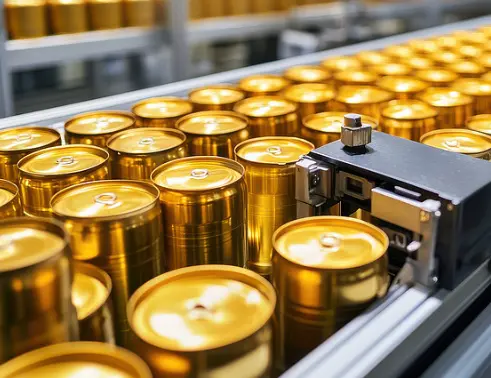
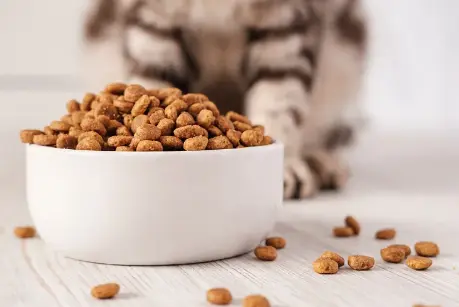

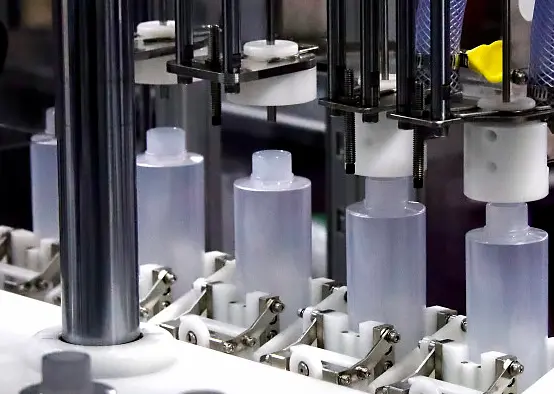
Market Situation
Pure Taurine Powder is widely used, particularly in the food and beverage industry. According to third-party research report website Guanyan Report Network, global taurine demand is approximately 160,000 tons annually, growing at a rate of 20-25% per year.
In China, with economic development, rising living standards, and increasing consumer awareness of taurine, its application in downstream markets has grown rapidly. In recent years, the scale of China's taurine market has continued to expand, and demand now accounts for approximately one-third of the global total.
Does Pure Taurine Powder Really Have Anti-Aging Potential?
Taurine has become a highly anticipated anti-aging star in recent years. As a conditionally essential micronutrient and a rich source of aminosulfonic acid, its anti-aging potential has been highly anticipated and even considered a key to delaying aging.
Taurine is an amino acid that plays a crucial role in numerous physiological functions in the human body, such as bile acid binding, cellular redox homeostasis, and osmotic pressure regulation. Scientists are excited about its anti-aging potential due to its demonstrated antioxidant, anti-inflammatory, and blood sugar-regulating effects in animal studies, as well as its efficacy in improving certain disease models. However, previous studies on taurine levels with age have yielded conflicting results: some studies show a decrease with age, while others show an increase or no change. This inconsistency has raised questions about taurine's suitability as a biomarker of aging.
To further explore the relationship between taurine and aging, scientists from the National Institutes of Health (NIH) and other institutions have conducted a large-scale, multi-species, long-term longitudinal study. The study, involving humans, rhesus macaques, and mice, comprehensively assessed taurine levels over age and their association with health markers using both longitudinal and cross-sectional design.
The study involved populations across multiple geographic regions, including human blood samples from the Baltimore Longitudinal Study of Aging (BLSA, ages 26-100 years), the Mallorca-Balearic Islands Study of Aging (ages 20-85 years), and the Atlanta Predictive Medicine Study cohort (ages 20-68 years), as well as samples from rhesus macaques (ages 3-32 years) and mice (ages 9-27 months).
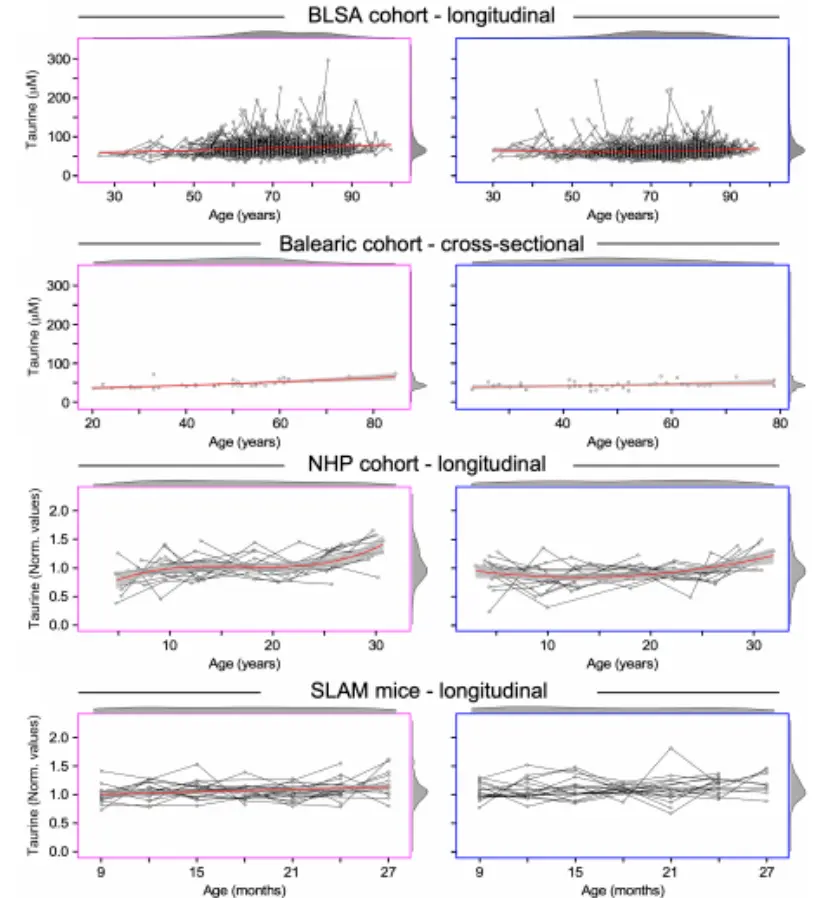
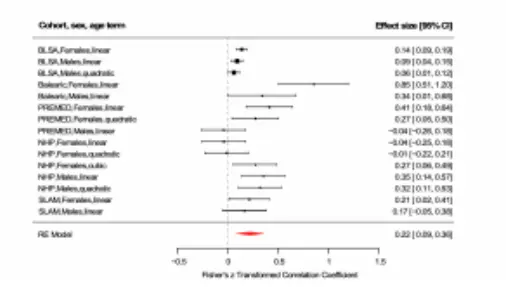
Sex- and species-specific effects of age on circulating taurine concentrations
Studies have found that blood taurine levels in humans, rhesus monkeys, and mice generally increase or remain constant with age, rather than decreasing as previously suggested by some studies. Specifically:
1. In humans, taurine concentrations in most populations, with the exception of some males, show an increasing trend with age. For example, in the BLSA study, mean circulating taurine concentrations in women increased from 58.81 ± 2.0 μM at age 26 to 74.47 ± 2.0 μM at age 100; in the Mallorca study, taurine concentrations in women increased from 36 ± 1.05 μM at age 20 to 62.3 ± 1.05 μM at age 80.
2. In rhesus monkeys, taurine concentrations in females increased by approximately 72% between the ages of 5 and 30 years, while in males, they increased by approximately 27%.
3. In mice, taurine concentrations in females increased linearly by approximately 15% between the ages of 9 and 27 months, while no significant changes were observed in males.
Furthermore, the study found inconsistent associations between taurine and health outcomes. Regarding muscle strength and body mass, the associations between taurine levels and these health indicators varied across age, species, and population groups. For example, in the BLSA study, the associations between taurine concentrations and knee strength varied across sex and age groups. In the Mallorca study, handgrip strength was positively correlated with taurine concentrations in young individuals, but negatively correlated in middle-aged and older individuals.
In summary, this study is the first to demonstrate, through a multispecies, long-term longitudinal study, that taurine levels do not decrease with age and, in many cases, increase. This directly challenges the view of taurine as a biomarker of aging. The study also emphasizes that solely relying on changes in blood taurine levels to assess biological aging is unreliable, as its associations with health outcomes are highly context-dependent.
With the increasing global aging of the population, the search for reliable biomarkers of aging to predict aging progression and develop personalized health strategies has become a hot topic in scientific research. However, the complexity of taurine reminds us that the path of scientific exploration is fraught with challenges, and conclusions cannot be drawn based on a single study or indicator.
Although Pure Taurine Powder has not become an ideal biomarker of aging, this study has provided us with valuable data and experience, advancing our understanding of the complexity of aging. In the future, with more research and the application of new technologies, scientists are expected to find more reliable biomarkers of aging and develop more effective anti-aging strategies to help people maintain health and vitality in old age.
As a professional taurine manufacturer and supplier, YTBIO always insists on providing customers with high-quality Pure Taurine Powder (99%). If you have any questions or needs, please contact us and we will respond as soon as possible.
References
MARIA EMILIA FERNANDEZ, MICHEL BERNIER, NATHAN L. PRICE, et al. Is taurine an aging biomarker?, Science (2025). DOI:10.1126/science.adl2116.
_1737093401309.png)
